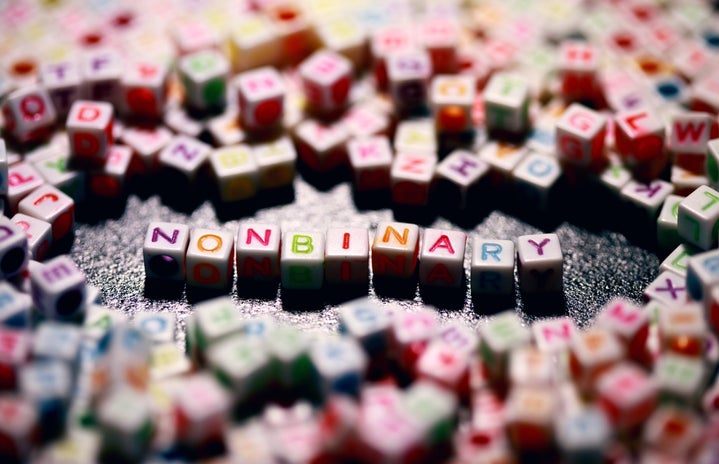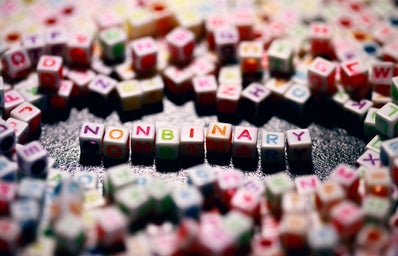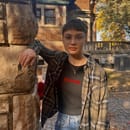Covid-19 forced the world into isolation, panic and grief right before I started college. I spent most of 2020 at home, imagining how I would spend my life and who I would be when it was all over. I wanted so desperately to be like other 19-year-old girls. My hair was long, nearly down to my waist, and I invested all my money into the clothes I thought the perfect girl would wear. I even joined a sorority.
My appearance felt like a costume. Ironically, I was frustrated when people perceived me as the girl I presented myself as. I hated my hair but refused to cut it. My clothes felt like they were made for someone else. I thought by knowing who I wanted to become, I knew who I was. Realizing I was wrong was the best thing that could have happened to me.
After I accepted myself as non-binary, I looked in the mirror every morning and whispered to myself, “I don’t have to pretend to be a girl today.” I kissed gender goodbye and I have never been happier.
Let me tell you though, it’s a headache to give up gender. Beyond pronoun changes and coming out, literally all the time you are a genderless person plopped into a cis world. Western norms often don’t make room for the fluidity of human identity. Everyone says that we are “all unique in our own way,” but we still place everyone in strict boxes. In reality, we all experience gender differently. For me, gender feels like this thing that I was told existed, but could never find. Even for people who identify within the binary, being a man or being a woman might not feel the same or have the same meaning to every man or woman.
However, people still view identifying as non-binary or genderqueer as being a “third gender” or category, a catch-all for experiences outside of male and female. It’s a clinical, binary-centric way of looking at it. The whole purpose of non-binary identity is to acknowledge that gender experiences are not limited to specific categories and expectations. That said, there is no one way to be non-binary.
Every non-binary person’s journey is unique. Some people do identify with a third gender, more than one gender or as genderfluid or agender. Some non-binary and genderqueer people also identify as transgender, because it is defined as identifying outside of the gender you were assigned at birth (male or female). Truthfully, we can all identify the way we want because we are the ones who make the rules.
Our language was created with a binary audience in mind, and finding inclusive language is hard because it didn’t evolve with traditionally “gendered” terms. When I came out as non-binary, everyone asked me what androgynous terms I wanted to use: “handsome,” “royalty,” “sibling,” “partner.” I heard those, yet nothing felt exactly right. It took me a while to realize I didn’t have to limit myself to gender-neutral terms. Genderqueer people are welcome to use words that make them most comfortable even when they are traditionally tied to masculinity and femininity. Many nonbinary people also don’t or don’t exclusively use they/them pronouns and that is okay.
In addition, being non-binary doesn’t erase the years I spent being perceived as a woman and identifying as one. I experienced growing up as one, working as one and living as one. I understand and identify with women’s experiences even though I am not one. This experience often goes unrecognized for transgender and non-binary people.
Ultimately, everyone is made up of the experiences they’ve had and how they have shaped them into the person they are. To me, being non-binary is about recognizing that our complicated experiences as humans cannot be entirely defined by a binary system. I encourage everyone—no matter how they identify—to explore their personal relationship with gender. It may surprise you how deep it really is. And, most of all, be proud of it.


